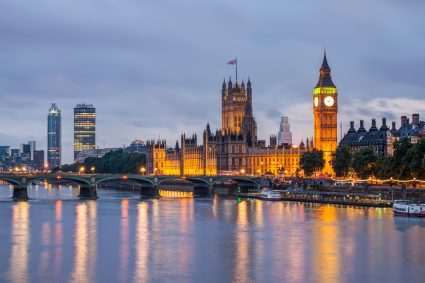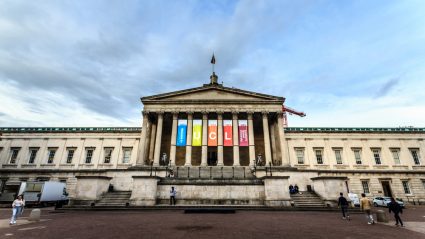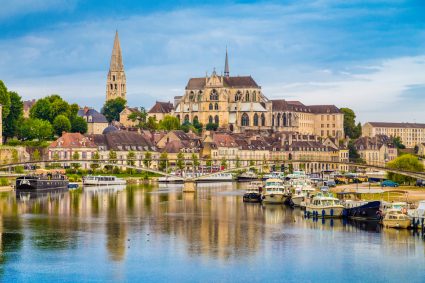The Nobel Prize is one of the greatest awards a person can get. Its renown has spread to every part of the world. The event is held every year in Stockholm, the Swedish capital. Winners of the competition get monetary rewards, a customised certificate, and a medal. Many universities have Nobel laureates among their staff and alumni. As the Nobel Prizes are awarded on 10 December, in this post we will look at the top 10 universities with the most Nobel Prize winners.
It can sometimes be difficult to determine which university a Nobel Prize winner should be associated with, as many winners have studied and worked at several different institutions. This list is one interpretation of which universities have the most Nobel Prize winners, but it should be noted that other sources might present slightly different lists.

1. Harvard University, USA
Harvard University is widely regarded as one of the world’s best educational institutions. Formerly known as New College, it was renamed in 1639 in honour of donor John Harvard, and it is now widely known for its prestigious medical and law departments. T.S. Eliot, who won the Nobel Prize in Literature in 1948, attended Harvard for many years, starting in 1906 as a philosophy student and continuing through 1909 as a philosophy assistant before returning in 1911 as a student. Theodore Roosevelt (1906), Ralph Bunche (1950), Henry Kissinger (1973), Al Gore (2007), and Barack Obama (2009) are among the popular Harvard graduates who have received the Nobel Peace Prize.
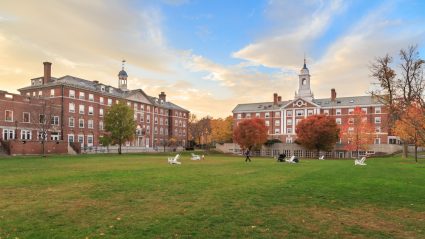
2. Columbia University, USA
Columbia University, established in 1754 as King’s College, is the fifth-oldest educational institution in the United States. It was also the first medical school in the United States to provide a doctoral degree. Many notable individuals throughout history have received their education at the famed Ivy League school, including Founding Fathers, Supreme Court Justices, Oscar winners, billionaires, and world leaders. Some of the Nobel-winning graduates of the university include former US President Barack Obama (Peace, 2009), physicists Isidor Isaac Rabi (1944) and Julian Schwinger (1965), chemists Herbert A. Hauptman (1985) and Irving Langmuir (1932), biologist Richard Axel (Medicine, 2004), and economists Alvin E. Roth (2012) and Milton Friedman (1976).
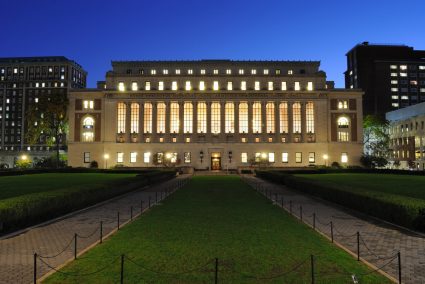
3. University of Cambridge, UK
Cambridge University emerged from a competitor academic institution. According to legend, scholars who had previously worked at Oxford University but had left due to a dispute founded the University of Cambridge in 1209. Cambridge University has made important contributions to the fields of mathematics and science. Before the Nobel Prizes even existed, the university’s students included people like Sir Isaac Newton and 17th-century philosopher and statesman Francis Bacon. Among the university’s famous Nobel laureates are John William Strutt (Physics, 1904), Ernest Rutherford (Chemistry, 1908), Niels Bohr (Physics, 1922), and Abdus Salam (Physics, 1979).
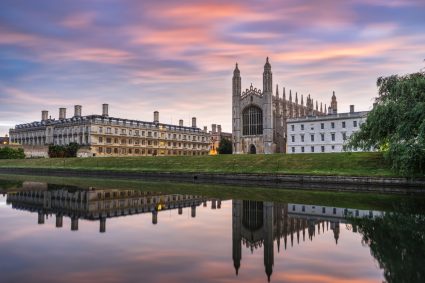
4. University of Chicago, USA
The American Baptist Education Society established the University of Chicago in 1890. John D. Rockefeller donated money to the institution, while Marshall Field, a businessman and department store owner, gave property. Since then, the institution has influenced many fields of study, ranging from economics to sociology and from law to literary criticism and physics. It’s been especially notable in the field of economics, with a notable school of economic thought named after the university as the Chicago school of economics. Chicago’s Nobel Prize winners include economists Milton Friedman (1976), George Stigler (1982), Harry Markowitz (1990) and Gary Becker (1992), physicist Luis Alvarez (1968), and philosopher Bertrand Russell (Literature, 1950).
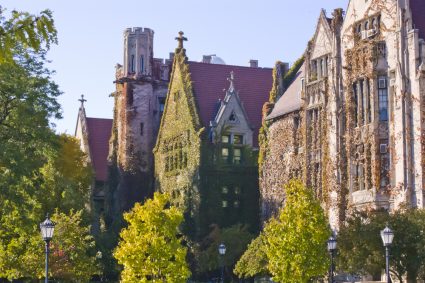
5. Massachusetts Institute of Technology, USA
Since its inception in 1861, the Massachusetts Institute of Technology (MIT) has been a driving force in the growth of engineering and the physical sciences. MIT has produced a plethora of successful entrepreneurs, business people, and innovations. Nobel laureates from the university include economists Paul Krugman (2008) and Robert J. Shiller (2013), former secretary-general of the United Nations Kofi Annan (Peace, 2001), chemists E.J. Corey (1990) and Robert Woodward (1965), and physicists William Shockley (1956), Richard Feynman (1965), Murray Gell-Mann (1969) and Robert B. Laughlin (1998).
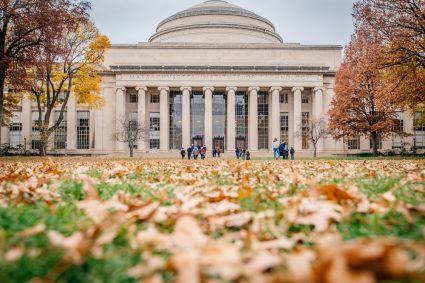
6. University of California, Berkeley, USA
UC Berkeley, the first campus in the University of California system, was created in 1868 when the Agricultural, Mining, and Mechanical Arts College in Oakland merged with the College of California. The university has since produced a wide range of Nobel Prize recipients, including physicists Willis Lamb (1955) and Steven Chu (1997), chemists Harold Urey (1934) and William Giauque (1949), economist Daniel Kahneman (2002), and Medicine winners, biochemist Selman Waksman (1952) and biologist Andrew Fire (2006).
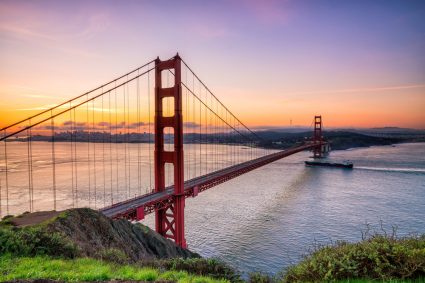
7. University of Oxford, UK
Oxford University is one of the oldest educational institutions in the United Kingdom. According to historians, the renowned Oxford University in England was founded as early as 1096. Oxford’s website declares, “Oxford is a one-of-a-kind and historically significant institution being the world’s oldest English-language educational institution”. Literature winners T.S. Eliot (1948) and William Golding (1983), economist Sir John Hicks (1972), penicillin co-discoverer Howard Florey (Medicine, 1945), neurophysiologist Sir John Eccles (Medicine, 1963), biologist Sir John Gurdon (Medicine, 2012), former Canadian prime minister Lester B. Pearson (Peace, 1957), and Burmese former political prisoner and later prime minister Aung San Suu Kyi (Peace, 1991), are some of the most popular Nobel-winning graduates from Oxford.
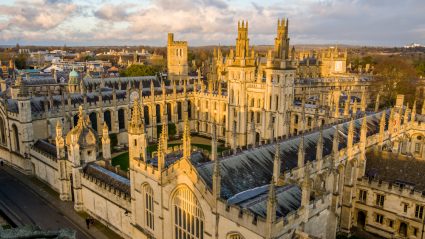
8. Stanford University, USA
Leland Stanford, a railroad magnate and former politician, and his wife Jane founded Stanford University in 1891. The Stanfords met with Harvard’s president at the time, Charles W. Eliot, to discuss the financial viability of establishing an institution comparable to Harvard in California. Alvin E. Roth (Economics, 2012), Roger D. Kornberg (Chemistry, 2006), Carl Wieman and Eric Cornell (both in Physics in 2001), John Harsanyi (Economics, 1994), and Randy Schekman (Medicine, 2013) are some of the Nobel-winning graduates from Stanford University. At the age of 51, former Stanford professor Kenneth Arrow became the youngest laureate of the Nobel Prize in Economic Sciences in 1972.
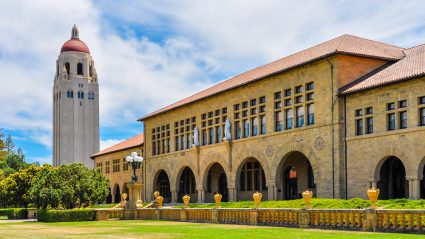
9. Yale University, USA
Yale University, one of the prestigious Ivy League institutions, was founded in the year 1701. The institution’s original name was the Collegiate School, and clergymen who saw a need to provide a higher education option for church lay leaders founded it. Nobel laureates from Yale include physicists Ernest Lawrence (1939) and Murray Gell-Mann (1969), as well as chemists John B. Fenn (2002) and Brian K. Kobilka (2012). Sinclair Lewis (1930) was the first American-born Nobel Literature Prize winner. John Franklin Enders (Medicine, 1954) is regarded as the father of modern vaccines. Other winners include biologist Joshua Lederberg (Medicine, 1958), and famous economist Paul Krugman (2008).
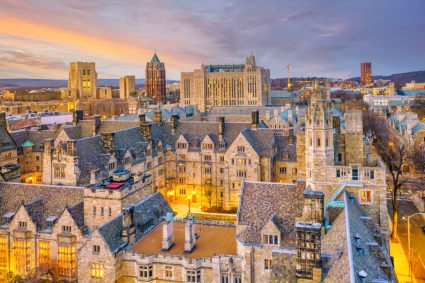
10. University of Paris, France
Founded originally in the 12th century, the University of Paris is considered one of Europe’s oldest institutions, even though it was disbanded by the French Revolution in 1793 and re-established in 1896. In 1970, the institution, formerly known as the Sorbonne, was divided into 13 separate schools. Some of the famous Nobel laureates from the University of Paris include physicists Pierre-Gilles de Gennes (1991), Georges Charpak (1992), Claude Cohen-Tannoudji (1997), Albert Fert (2007) and Serge Haroche (2012), economists Gérard Debreu (1983) and Maurice Allais (1988), virologist Luc Montagnier (Medicine, 2008), iconic French philosopher Jean-Paul Sartre (Literature, 1964), and pioneering scientist Marie Curie (Physics in 1903 and Chemistry in 1911).

Conclusion
The number of persons from a university’s alumni and staff who have received the Nobel Prize is one of the most significant characteristics of a university’s reputation. So, if you want to win a Nobel Prize someday, consider applying to one of the above universities. Who knows? One day, you might find yourself on a list similar to this one!
While studying, you’ll need to find some student accommodation. Here at Student.com we list over one million beds in over 400 cities across the world. So, wherever in the world you end up spending your university years, you’ll probably find some high-quality student accommodation listed on our website!

